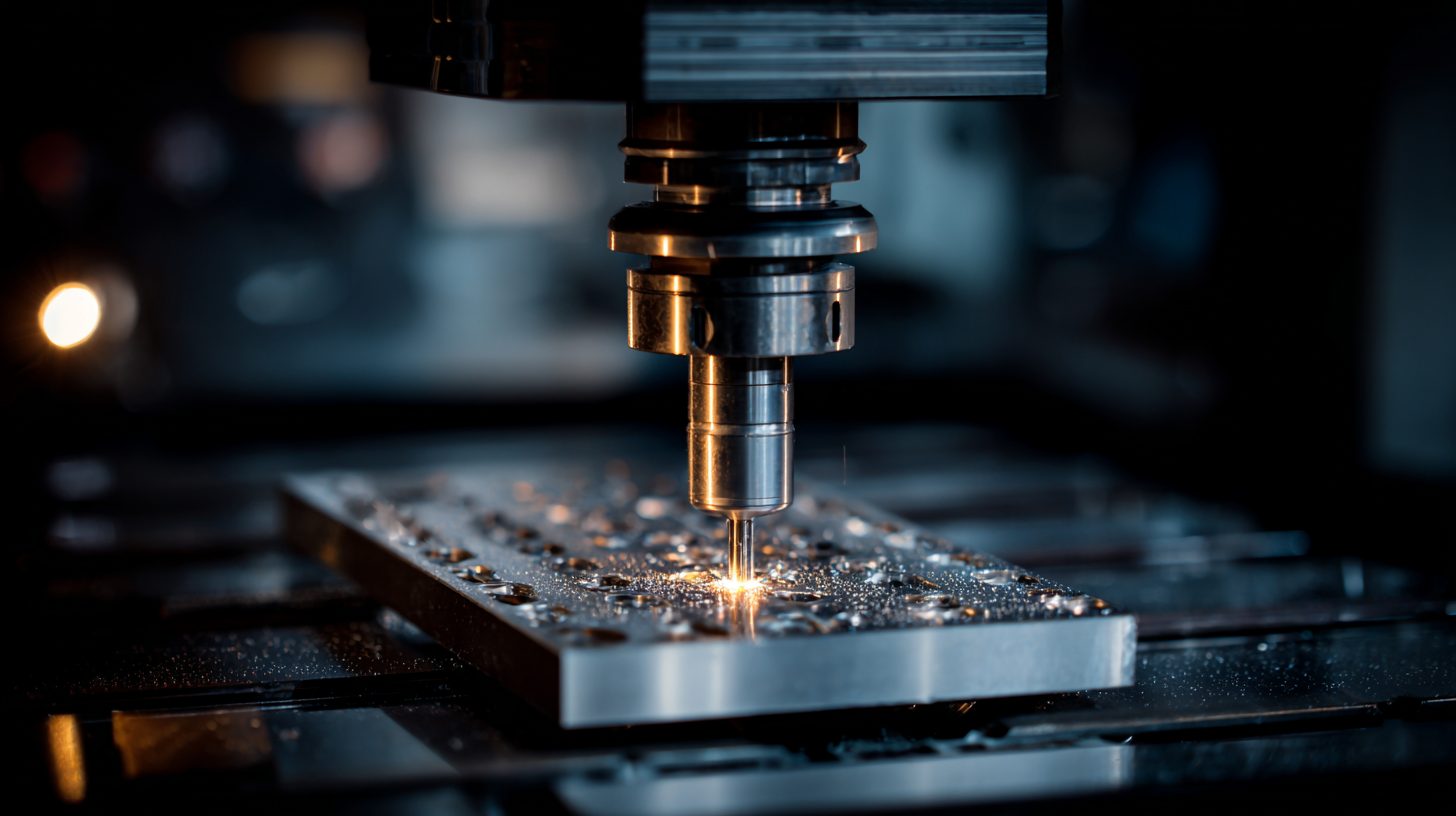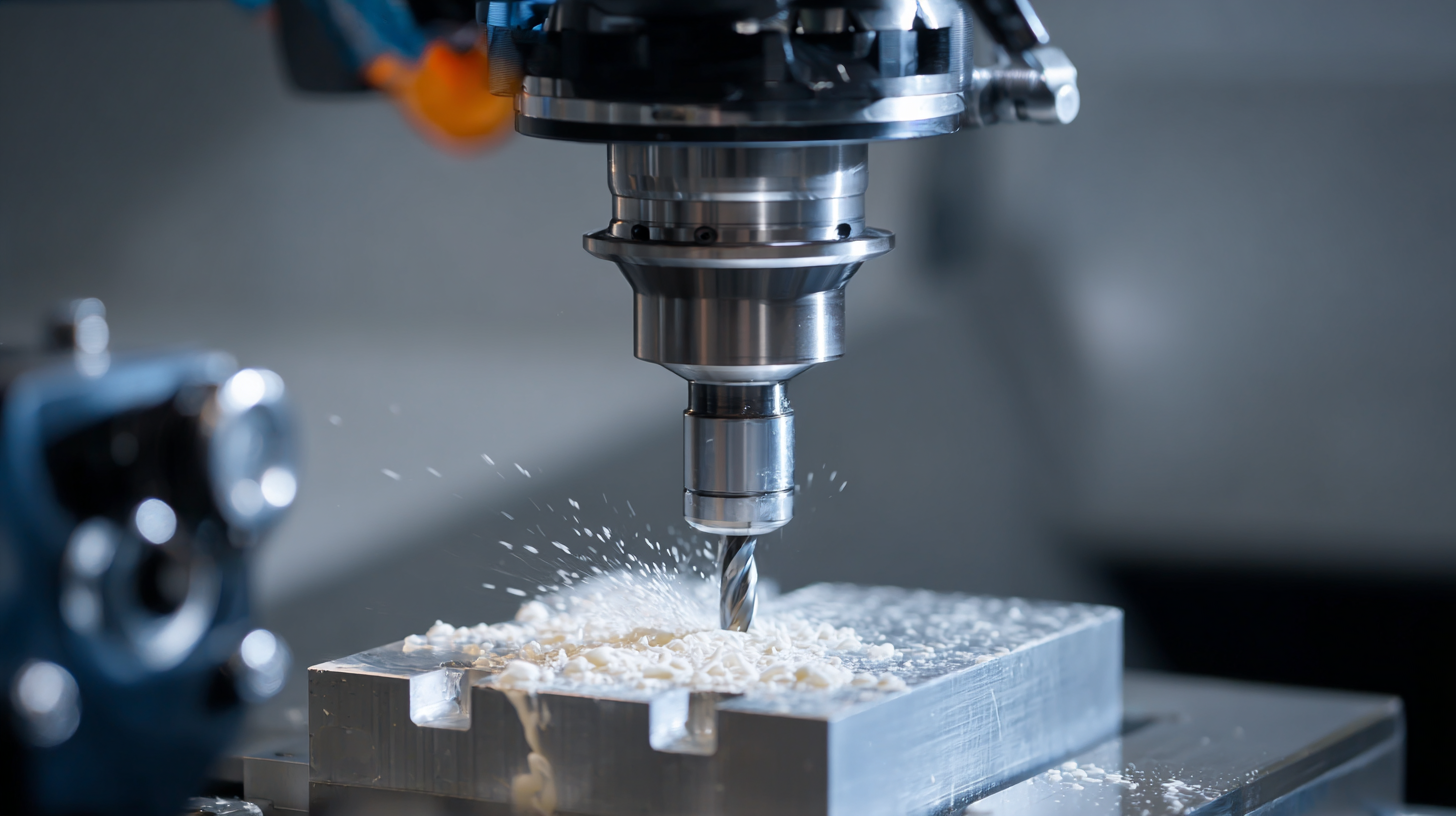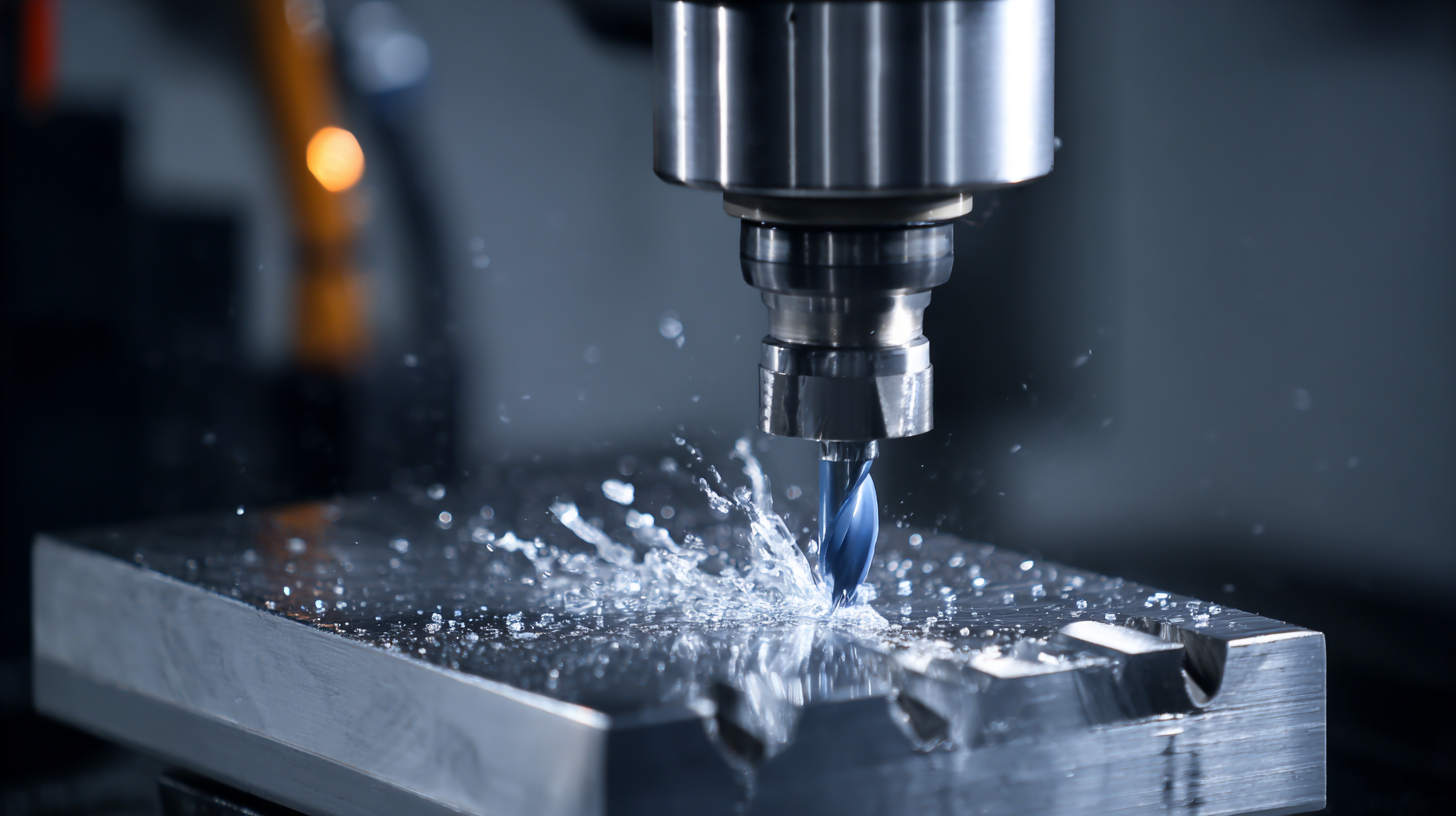Blog
What is a Mini CNC Mill and How Can It Transform Your Machining Process
In today’s rapidly evolving manufacturing landscape, efficiency and precision are paramount for success. Enter the mini CNC mill, a compact yet powerful tool that is revolutionizing the machining process for hobbyists and professionals alike. Unlike traditional milling machines, which can take up significant space and require substantial investment, the mini CNC mill provides an accessible alternative without compromising on functionality. It allows users to create intricate designs and components with unparalleled accuracy, making it ideal for prototyping and small-scale production.

This blog will explore the transformative capabilities of the mini CNC mill, highlighting its advantages over conventional machines and discussing how it can significantly enhance your machining process. Whether you are a seasoned machinist or a newcomer to the field, understanding the potential of a mini CNC mill could unlock a world of possibilities in your projects.
Understanding the Basics: What is a Mini CNC Mill?
A mini CNC mill is a compact and versatile machining tool that is designed for precision milling operations in smaller projects or workshops. These machines have gained popularity among hobbyists and small business owners due to their space-saving design and affordability. According to a report by Grand View Research, the global CNC machine market is expected to reach $100 billion by 2027, indicating a growing demand for advanced machining technologies like mini CNC mills.
One of the key advantages of mini CNC mills is their ability to produce intricate parts with high accuracy, making them suitable for various applications in industries such as aerospace, automotive, and electronics. A study published in the Journal of Manufacturing Processes highlighted that CNC milling can improve production efficiency by up to 30% compared to traditional methods. With advancements in software and technology, these mills now offer features such as automated tool changes and enhanced user interfaces, allowing for seamless integration into modern manufacturing processes.
Mini CNC mills also support a range of materials, including metals, plastics, and composites, which broadens their applicability. As small manufacturers increasingly adopt CNC technology to compete with larger firms, mini CNC mills serve as a stepping stone, enabling them to scale operations without significant capital investment. As the industry evolves, mini CNC mills are likely to play a central role in democratizing access to precision machining for both individuals and small enterprises.
Key Features that Differentiate Mini CNC Mills from Traditional Mills
Mini CNC mills have gained popularity in recent years, particularly due to their unique features that set them apart from traditional milling machines. One hallmark distinction is their compact size, which allows small businesses and hobbyists to utilize precise machining capabilities in limited workspaces. According to a report from Market Research Future, the global CNC machine market is expected to grow at a CAGR of 6.7% through 2025, driven in part by the increasing adoption of mini CNC mills for smaller-scale projects. This growth highlights a shift in how industries approach machining, prioritizing versatility and efficiency.
Another key feature differentiating mini CNC mills is their user-friendly interface and advanced software compatibility. Modern mini CNC machines often come equipped with intuitive programming options, which significantly reduce the learning curve for operators. A study by Technavio suggests that the rising interest in DIY projects and small-scale manufacturing is prompting more engineering firms to focus on software integrations for mini CNC machines, enabling them to handle complex designs with ease. Furthermore, mini CNC mills often boast enhanced precision and reduced waste material, leading to both cost savings and increased sustainability in machining processes.
Comparison of Mini CNC Mills vs Traditional Mills
This chart illustrates the comparison between Mini CNC Mills and Traditional Mills based on various factors such as cost, footprint, ease of use, setup time, and precision. Mini CNC Mills score higher in most categories, demonstrating their potential to transform machining processes.
Benefits of Using a Mini CNC Mill in Your Machining Workflow
 Mini CNC mills are revolutionizing the machining workflow across various industries. These compact machines offer high precision and versatility, making them ideal for both hobbyists and professionals. According to a report from MarketsandMarkets, the CNC machine market is projected to reach $100 billion by 2025, with mini CNC mills playing a significant role in this growth due to their affordability and efficiency. By integrating a mini CNC mill into your operations, you can achieve tighter tolerances and reduce waste, ultimately leading to significant cost savings.
Mini CNC mills are revolutionizing the machining workflow across various industries. These compact machines offer high precision and versatility, making them ideal for both hobbyists and professionals. According to a report from MarketsandMarkets, the CNC machine market is projected to reach $100 billion by 2025, with mini CNC mills playing a significant role in this growth due to their affordability and efficiency. By integrating a mini CNC mill into your operations, you can achieve tighter tolerances and reduce waste, ultimately leading to significant cost savings.
One of the standout benefits of using a mini CNC mill is the enhanced ability to iterate on designs quickly. The typical time to market has been reduced significantly, as these machines allow for rapid prototyping and adjustments. Furthermore, they require less physical space compared to traditional milling machines, making them suitable for small workshops. A study by Technavio noted that small manufacturers using CNC technology saw productivity increases of up to 30%.
Tips: Start with a mini CNC mill that comes with user-friendly software to help streamline your process. Also, consider the material compatibility of your mill; aluminum and plastic are great starting points if you're looking to test and refine your techniques. Regular maintenance is key—clean your machine after each use to ensure consistent performance.
Essential Considerations Before Investing in a Mini CNC Mill
Investing in a mini CNC mill can significantly enhance your machining process, but there are essential considerations to keep in mind. First, assess your specific needs. Determine the materials you will be working with and the types of projects you plan to undertake. This can help you select a mini CNC mill that offers the appropriate capabilities, like size, speed, and precision.

Tip: Look for a model with adjustable parameters to accommodate a range of materials and designs. Flexibility can save you time and money as your projects evolve.
Additionally, consider the space available in your workshop. Mini CNC mills are designed to be compact, but they still require adequate room for operation and accessibility. Evaluate your layout and ensure that you can accommodate the equipment without compromising safety or efficiency.
Tip: Always factor in the additional space for necessary tools, materials, and any future upgrades you may want to implement. This foresight will help you maintain an organized and productive workspace.
Transformative Techniques: Maximizing Output with a Mini CNC Mill
The Mini CNC Mill has emerged as a game-changer for both hobbyists and small-scale manufacturers. By integrating advanced technology into a compact design, it allows users to achieve high precision and intricate designs without the need for oversized machinery. One of the transformative techniques employed by this tool is its capability to run multiple operations simultaneously, drastically reducing machining time and enhancing productivity. With its customizable features, users can fine-tune their settings to optimize feed rates and tool paths, ensuring that every project meets the desired specifications while maximizing material usage. Moreover, the adaptability of the Mini CNC Mill opens up new avenues for creativity and innovation in machining processes. Users can explore complex geometries and intricate patterns that would be unfeasible with traditional methods. By leveraging software that allows for easy design modifications, machinists can respond promptly to market demands and experiment with new products without significant downtime. This flexibility not only maximizes output but also encourages a culture of continuous improvement and experimentation, which is essential in today's fast-paced manufacturing environment.
